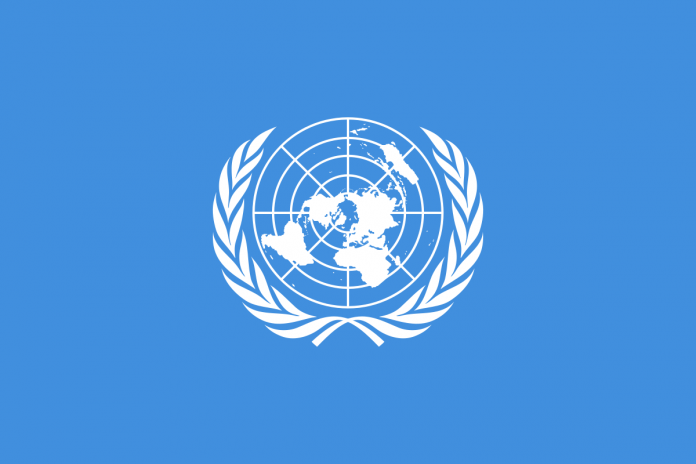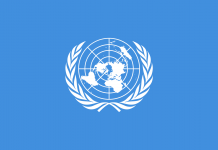The article is written by Daksha Khanna, from Symbiosis Law School, NOIDA. The article discusses The United Nations (Privileges and Immunities) Act, 1947 and how these privileges and immunities impact the international authorities. It further talks in detail about the objective and scope of the act, it’s important provisions, limitations and impact of the act on India.
Table of Contents
Introduction
The United Nations is an Intergovernmental Organization that has the aim of maintaining national peace and security and to develop friendly relations among nations and achieve national cooperation and act as a harmonizing tool between nations that are at a clash with each other. The UN headquarters are in New York City with some of the main offices in Geneva, Nairobi, Vienna, and the Hague.
The inception of such an organization took place to prevent future wars and has been preceded by the League of Nations. The objective of the organization is to :
- Maintain international peace
- Maintain international security
- Protection of Human Rights
- Provision of Humanitarian Aid
- Promotion of Sustainable Development
- Upholding International Law
Its inception took place due to the hubbub caused during the Cold War between the United States and the Soviet Union along with their allies. There are six principal organs of the United Nations:
- The General Assembly
- The Security Council
- The Economic and Social Council
- The Trusteeship Council
- The International Court of Justice
- UN Secretariat
There are several specialized agencies of the same:
Objective and scope of the Act
The inception of the United Nations (since 1945) brought with it certain immunities and privileges that were considered necessary for it to function freely and to be able to be authoritative when deemed necessary. Its function is to protect future generations from possibilities of war by promoting international peace and security. The purpose of immunities is to protect the UN from exceeding their jurisdiction of interference and litigation. These immunities extend to its premises, properties and members of the same. The notion is that the United Nations is an organization that has been created for the protection for future generations by maintaining international peace and justice. Since the United Nations is the party, protecting the injured parties in Good Faith and so, has immunities granted to it to protect it from certain liabilities. This principle is also the one that we see where the ability of individuals is limited when it comes to making claims against federal governments and charitable organizations. For instance, in an international case named:
In the cases given above, the individuals, concerning the case, alleged that the UN had done certain wrong and to correct this, a forum was sought to hear their claims where the parties asked for a remedy. Die to the privileges and immunities and varying interpretations of the same had led to the UN neither compensating these parties for the wrong done nor were they given the liberty to take the matter to a domestic court. The rationale behind the provision of such immunities to the United Nations are:
- Making it easier to safeguard the independence of the United Nations.
- To keep its unique function intact.
- To free the burden from national courts to deal with issues of international diplomacy.
- To protect the role of the United Nations as a Good Samaritan.
Due to these rationales, it becomes possible for the United Nations to function according to its mandate which is protecting the member nations against a threat that can harm their peace and security.
Important provisions
The key provisions that have formed the basic skeletal structure of the Act are as follows:
- The act established the Juridical personality of the United Nations under Article I of the act.
- Article II states that the UN premises shall be inviolable and the property of the UN shall be immune from search, requisition, confiscation and so on.
- Article II further states that the UN shall be exempted from taxes and customs duties, with prohibitions and restrictions on imports and exports.
- Article III talks about the Diplomatic Immunity ( Diplomatic Immunity means that diplomats are given a form of legal immunity that ensures diplomats are given a safe way and are not susceptible to a lawsuit) of communications and mail.
- Article IV talks about the functional immunity (functional Immunity means conferring immunity on those performing acts of state and becoming immune from prosecution) of delegates
- Article V further states that Officials have functional immunity.
- Article VI states that experts have a right to Functional Immunity as well.
- Article VII recognizes the United Nations Laissez-Passer (UNLP or LP- is a diplomatic travel document which is issued by the United Nations, it can be used as a national passport).
Reasons for UN immunities
When under ordinary circumstances, when an entity causes harm to the victim even when acting in good faith with the best intentions, the entity has to repair that harm. The doctrine of immunity is implemented in the case of the UN and nullifies the consequences that would be arising out of that liability. This right is recognized for some very important and logical reasons :
The main reason for granting immunity to the UN is that the UN has a unique function as a universal and multilateral organization to maintain international peace and security, which without immunity, would have to deal with troubling lawsuits and acts on behalf of the member states where they may retaliate against the organization and its members.
Secondly, the UN is the only organization with the power to provide emergency assistance and peacekeeping. Such services are provided without charge and on a global scale. For such unique functioning, non-interference becomes essential and mandatory due to which such immunities are granted to the UN.
Lastly, the structure of the organization is unique and national courts are not at that level where they would be able to adjudicate the policies and actions of the UN. There is a good enough chance of national courts depicting bias against the UN due to differences between ideologies and culture. Further, the way the non-interference in the internal matters of a states’ policies is encouraged, similarly questions and claims against the UN’s internal policies will be considered inappropriate. This would also hamper the independence and individuality of the organisation.
Limitations and exceptions
Since the UN is provided with immunities it becomes necessary to keep a check on these immunities and privileges so that it does not lead to abuse of power. Article 105 of the UN Charter limited its immunities to those that were functionally necessary. It states that ‘the organisation shall enjoy in the territory of each of its Members such privileges and immunities as are necessary for the fulfilment of its purposes’. The immunity was intended to be implemented for functional necessity and was not absolute power.
Further, there is a restriction on the UN’s immunity by its Human Rights obligations under Articles 1(3), 55 and 56. Such immunity would not be considered valid if it would appear to violate human rights.
In the case of Brzak v. UN, it was held that the Foreign Sovereign Immunities Act, 1976 might apply but the absolute immunity exists unless the actions of the United Nations fall under the act’s list of exceptions. Exceptions consist of the actions in which the foreign state has waived its immunities, actions based on the foreign sovereign’s commercial activities carried out or causing a direct effect in the US and actions that affect property rights. Even though the UN has humanitarian missions to fulfil, the injury caused by them is no less serious than the injury caused by any other actor.
Since the UN is the rescuer in these cases it becomes important for them to take action for the same and is bound to exercise their function of rescue with reasonable care. The United Nation’s absolute immunity is to be upheld even though in some cases, the party is left in a case worse than earlier.
Alternative means to reduce the usage of immunity
The UN must provide for alternative means for the settlement of private disputes. There have not been any explicit mentions of how to go about it, but it can be done through reviewing the procedures. Article 29 of Convention on Privileges and Immunity of United Nations says that the United Nations must provide for alternative modes for the settlement of private claims. This would also help in the reduction of monetary expenditure on legal procedures.
The United Nations has made available such alternatives by establishing a staff labour tribunal, ombudsperson for a claim arising in Kosovo case. An independent tribunal would also serve quite well as it would achieve objects like :
- Provision of remedies to those harmed by the acts of UN
- Limit the function of immunity that the UN uses for its mandate.
There can be a chance for those who have been harmed to be adjudicated through fair means before an independent decision-maker like a tribunal.
The Act as a roadmap for the future
The United Nations has a long way to go, but since the UN is something that we have to constantly rely on, the Act acts as a hurdle. Anticipating strained relations between India and China would lead the UN to intervene but would it be fair? There is a fair amount of intervention by member states as well. Understandably, the UN’s immunity is something they need for freedom from the jurisdiction of member state courts but it has been misused in several cases as well. Mass torts cases hold a lot more important than failing to challenge the UN on its wrong decisions. Any institution, be it national or international, must not have the authority to be immune from its followers. The United Nations needs to be checked in some instances and the act fails to make that possible. If anything, it would disrupt every step. Further, the concept of absolute immunity needs to amend. Compensation must be provided when it is owed, one cannot waive it off in the name of the authority. The future peacekeeping missions are at a greater risk for the UN to achieve if the absolute immunity makes the claimant suffer more than it would have without the UN intervention.
How has the act benefitted India
The United Nations and its principal organs have offices in India that ensure its smooth functioning. Those Indian offices are considered parts of the United Nations and are provided with privileges and immunities under the Indian Laws. These make the Initiatives on the part of the international offices easier. For instance, India had extended the act to the International Finance Corporation and its representatives. Their aim to address development challenges faced by the private sectors in the country. This act helps the companies to manage risk and broaden their access to markets, private investment becomes easier which is considered very crucial for the expansion of business and to create jobs in developing economies. The same has been extended to:
- International Civil Aviation Organisation
- World Health Organisation
- International Labour Organisation
- Food and Agriculture Organisation.
- United Nations Educational, Scientific and Cultural Organisation
- International Monetary Fund.
The privileges conferred go them include:
- Exemption from all Direct Taxes.
- Exemption from Customs Duties.
- Exception from Prohibition and Restrictions on articles imported by the United Nations for its official use.
- Exception from Prohibition and Restrictions on articles exported by the United Nations for its official use.
- Immunity from Personal Arrest.
- Immunity from Detention
- Immunity from seizure of their baggage.
Disadvantages of the Act in India
The above-stated way of handing over a financial institution’s immunity is a serious concern. It would make it very difficult for an Indian citizen to seek justice if anything goes wrong at the hand of the international organization.
The government of India, on the other hand, had compromised on something very essential to get into the good books of such international organizations. Our constitutional rights were compromised due to the said act and have made it difficult for the citizens to seek justice in their own country. These immunities have also made it easier for such institutions to get an easy pass for the damages caused by their projects.
Critical analysis
Since the foundation of the United Nations, it has been in constant development. New roles have been attributed to it, its principal organs have also developed over time. From the perspectives of the individuals, a threshold has to be set when it comes to compensating the parties harmed during the operations of peacekeeping. In a very layman sense, the organization should be held responsible for the same and so the United Nations is the one that needs to compensate for the same. But there may be other possibilities as well. For instance, in the case where member states would also be held responsible for the acts of the organization. In the case Maclaine Watson & Co. v. Ltd. v. Int’l Tin Council, 81 I.L.R. 670 (UKHL 1989) it was considered to be an issue whether states could be held liable for the debts of an international organization of which they were a member.
The member states are in a dire need to hold sessions to decide the types of alternative modes that can be adopted to protect the United Nations as well as the third party claimants in need of compensation for their damages.
A diplomatic agent is granted privilege in the interest of his native country, which means he is not entitled to such immunities and privileges from his government, but this is not the case with an international official. International Officials, on the other hand, act for the organization in question and immunities that are essential for their proper performance are considered to be essential everywhere.
Recommendations
- The member states are in a dire need to hold sessions to decide the types of alternative modes that can be adopted to protect the United Nations as well as the party claimants in need of compensation for their damages.
- The United Nations must maintain a contingency fund to have resources available at hand to settle such claims.
- By refusing to acknowledge responsibility, the United Nations may end up losing its member states to disappointment and non-alliance.
- The determination of the United Nations being immune is wrong and this is something that requires urgent amendments and alterations.
- There is a lack of provision about the expulsion of officials or an official of the United Nations for abuse of privileges in a member state or a host country.
- Responsibility should be attached to an International Organisation and it must be accepted by the organization as well.
Conclusion
While international law provides diplomatic privileges and immunities, which have remained quite constant for a long time, the law governing the privileges and immunities of international officials and Member representatives is still in a state of flux. it is because of the inconclusive legal basis upon which these privileges and immunities are founded. International conventions and national legislation, on which functional exemptions from territorial jurisdiction are based, have failed to resolve these problems and eliminate confusion.
The extension of privileges and immunities to persons connected with the United Nations and other international organizations is essential for their smooth and effective functioning. To this end, despite its lacunae, the immunities and privileges have proven to be an important step forward in the current system of being set apart or being given a greater pedestal than the territorial authority.
References
- https://chicagounbound.uchicago.edu/cgi/viewcontent.cgi?article=1693&context=cjil
- https://www.indiacode.nic.in/bitstream/123456789/1697/1/A1947-46.pdf
- https://www.refworld.org/docid/3b00f47a1c.html
- https://www.un.org/en/
- https://alistairreignblog.files.wordpress.com/2016/06/un-convention-on-the-privileges-and-immunities-of-the-un-of-13-february-1946.pdf
- https://opil.ouplaw.com/view/10.1093/law:ildc/1733uk89.case.1/law-ildc-1733uk89
LawSikho has created a telegram group for exchanging legal knowledge, referrals and various opportunities. You can click on this link and join:
 Serato DJ Crack 2025Serato DJ PRO Crack
Serato DJ Crack 2025Serato DJ PRO Crack











 Allow notifications
Allow notifications


